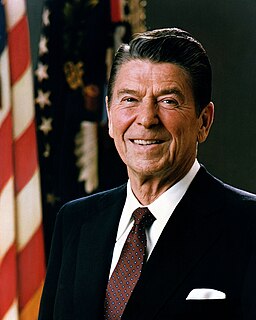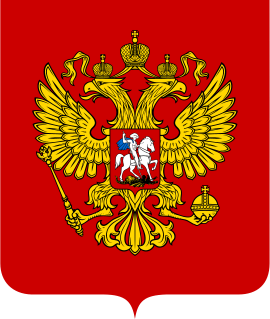| |||||
| Decades: | |||||
|---|---|---|---|---|---|
| See also: | Other events of 1995 Years in Iran | ||||
Events from the year 1995 in Iran.
| |||||
| Decades: | |||||
|---|---|---|---|---|---|
| See also: | Other events of 1995 Years in Iran | ||||
Events from the year 1995 in Iran.
This section is empty.You can help by adding to it.(January 2015) |

Impeachment is the process by which a legislative body levels charges against a government official. Impeachment does not in itself remove the official definitively from office; it is similar to an indictment in criminal law, and thus it is essentially the statement of charges against the official. Whereas in some countries the individual is provisionally removed, in others they can remain in office during the trial. Once impeached, an individual must then face the possibility of conviction on the charges by a legislative vote, which is separate from the impeachment, but flows from it, and a judgment which convicts the official on the articles of impeachment entails the official's definitive removal from office.

The president of the United States (POTUS) is the head of state and head of government of the United States of America. The president directs the executive branch of the federal government and is the commander-in-chief of the United States Armed Forces.

The President of France, officially the President of the French Republic, is the executive head of state of France in the French Fifth Republic. In French terms, the presidency is the supreme magistracy of the country.

Ronald Wilson Reagan was an American politician who served as the 40th president of the United States from 1981 to 1989 and became a highly influential voice of modern conservatism. Prior to his presidency, he was a Hollywood actor and union leader before serving as the 33rd governor of California from 1967 to 1975.

The vice president of the United States is the second-highest office in the executive branch of the U.S. federal government, after the president of the United States, and ranks first in the presidential line of succession. The vice president is also an officer in the legislative branch, as president of the Senate. In this capacity, the vice president is empowered to preside over Senate deliberations, but may not vote except to cast a tie-breaking vote. The vice president also presides over joint sessions of Congress.

The president of India is the ceremonial head of state of India and the commander-in-chief of the Indian Armed Forces.

The United States presidential line of succession is the order in which officials of the United States federal government assume the powers and duties of the office of president of the United States if the incumbent president becomes incapacitated, dies, resigns, or is removed from office. Presidential succession is referred to multiple times in the U.S. Constitution – Article II, Section 1, Clause 6, as well as the 12th Amendment, 20th Amendment, and 25th Amendment. The vice president of the United States is designated as first in the presidential line of succession by the Article II succession clause, which also authorizes Congress to provide for a line of succession beyond the vice president; it has done so on three occasions. The current Presidential Succession Act was adopted in 1947, and last revised in 2006.

The Rajya Sabha or Council of States is the upper house of the bicameral Parliament of India. It currently has a maximum membership of 245, of which 233 are elected by the legislatures of the states and union territories using single transferable votes through Open Ballot while the President can appoint 12 members for their contributions to art, literature, science, and social services. Members sit for staggered terms lasting six years, with elections every year but almost a third of the 233 designates up for election every two years, specifically in even-numbered years. The Rajya Sabha meets in continuous sessions, and unlike the Lok Sabha, being the lower house of the Parliament, the Rajya Sabha, which is the upper house of Parliament, is not subjected to dissolution. However, the Rajya Sabha, like the Lok Sabha can be prorogued by the President.

The President of Russia, officially the President of the Russian Federation, is the head of state of the Russian Federation, as well as the commander-in-chief of the Russian Armed Forces. He holds the highest office in Russia.

James Riddle Hoffa was an American labor union leader who served as the President of the International Brotherhood of Teamsters (IBT) union from 1957 until 1971.

The President of the Philippines is the head of state and head of government of the Philippines. The President leads the executive branch of the Philippine government and is the commander-in-chief of the Armed Forces of the Philippines. The President is directly elected by the people, and is one of only two nationally elected executive officials, the other being the Vice President of the Philippines. However, four vice presidents have assumed the presidency without having been elected to the office, by virtue of a president's intra-term death or resignation.

The Parliament of India is the supreme legislative body of the Republic of India. It is a bicameral legislature composed of the President of India and the two houses: the Rajya Sabha and the Lok Sabha. The President in his role as head of legislature has full powers to summon and prorogue either house of Parliament or to dissolve Lok Sabha. The president can exercise these powers only upon the advice of the Prime Minister and his Union Council of Ministers.

Barack Hussein Obama II is an American attorney and politician who served as the 44th president of the United States from 2009 to 2017. A member of the Democratic Party, he was the first African American President of the United States. He previously served as a U.S. senator from Illinois from 2005 to 2008 and an Illinois state senator from 1997 to 2004.

Rajendra Prasad was the first President of India, in office from 1950 to 1962. He was an Indian political leader and lawyer by training. Prasad joined the Indian National Congress during the Indian Independence Movement and became a major leader from the region of Bihar. A supporter of Mahatma Gandhi, Prasad was imprisoned by British authorities during the Salt Satyagraha of 1931 and the Quit India movement of 1942. After the 1946 elections, Prasad served as Minister of Food and Agriculture in the central government. Upon independence in 1947, Prasad was elected as President of the Constituent Assembly of India, which prepared the Constitution of India and served as its provisional parliament.

The Presidents Cup is a series of men's golf matches between a team representing the United States and an International Team representing the rest of the world minus Europe. Europe competes against the United States in a similar but considerably older event, the Ryder Cup.

Gerald Rudolph Ford Jr. was an American politician who served as the 38th president of the United States from August 1974 to January 1977. Before his accession to the presidency, Ford served as the 40th vice president of the United States from December 1973 to August 1974. Ford is the only person to have served as both vice president and president without being elected to either office by the Electoral College.

John Fitzgerald Kennedy, often referred to by the initials JFK and Jack, was an American politician who served as the 35th president of the United States from January 1961 until his assassination in November 1963. Kennedy served at the height of the Cold War, and the majority of his work as president concerned relations with the Soviet Union and Cuba. A Democrat, Kennedy represented Massachusetts in the U.S. House of Representatives and Senate prior to becoming president.

The United States Senate is the upper chamber of the United States Congress, which, along with the United States House of Representatives—the lower chamber—comprises the legislature of the United States. The Senate chamber is located in the north wing of the Capitol Building, in Washington, D.C.
| This year in Iran article is a stub. You can help Wikipedia by expanding it. |